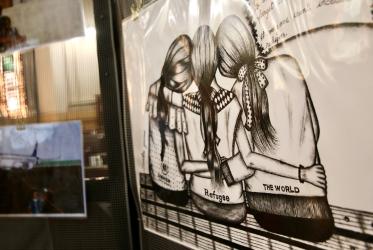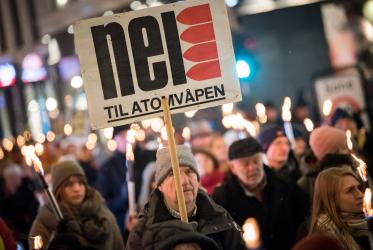Displaying 1 - 20 of 26
11 September 2023
WCC offers input to the UN New Agenda for Peace
13 April 2023
Trying to do good for the world
18 December 2017
Peacemaking “a great and compelling life task”
09 December 2017
Prayers for peace - Ecumenical service at Trinity Church, Oslo, Norway
09 December 2017
Trinity Church, Oslo, Norway
We are called to work on a peace built on trust, not power
04 August 2017
“The world must be freed of nuclear weapons”
06 August 2015
Momentum builds for ban on nuclear weapons
16 December 2014












